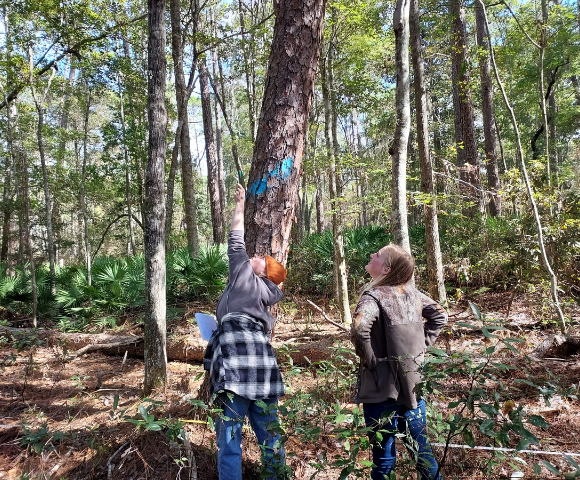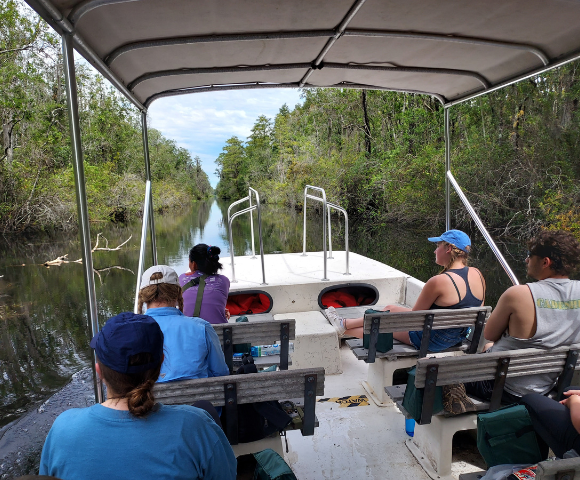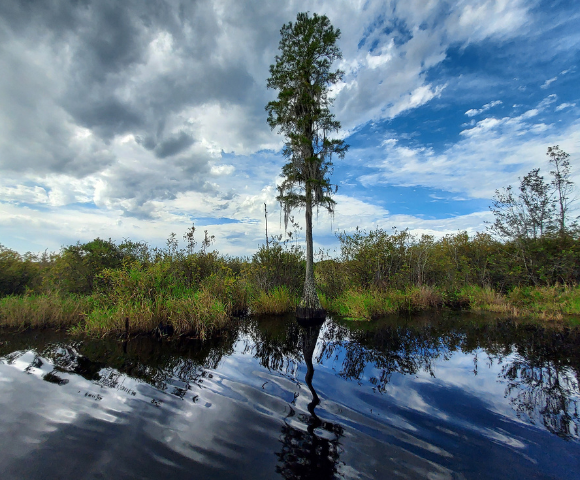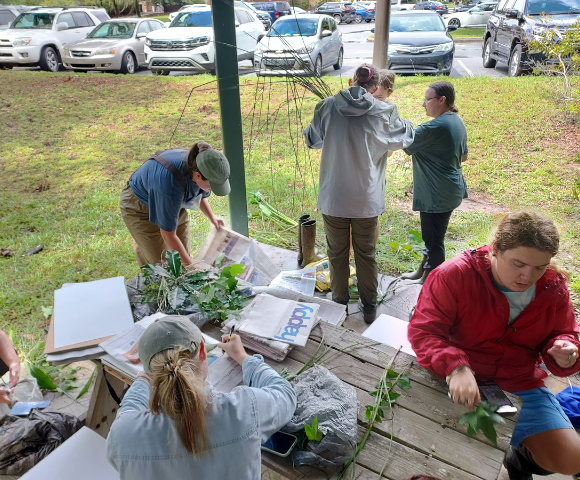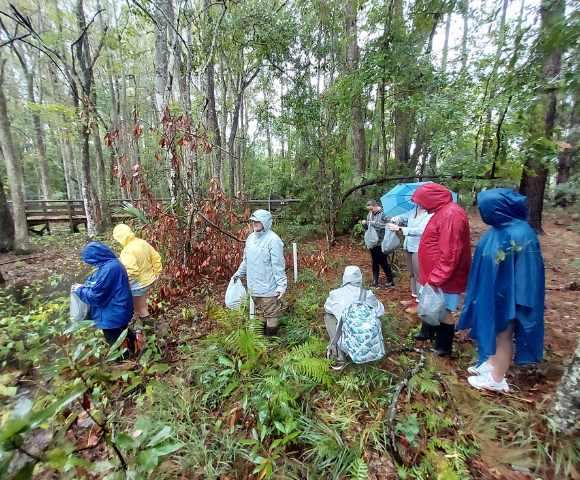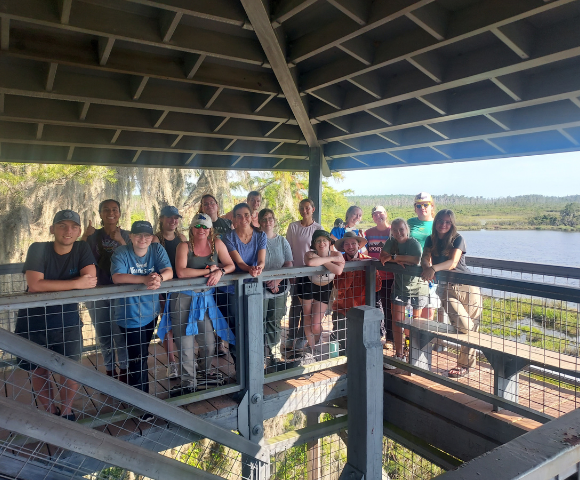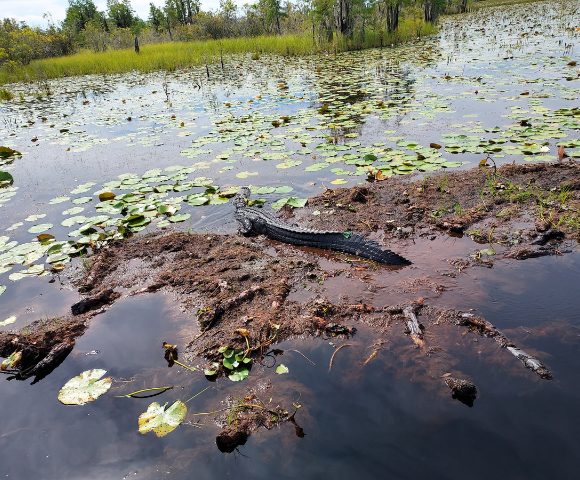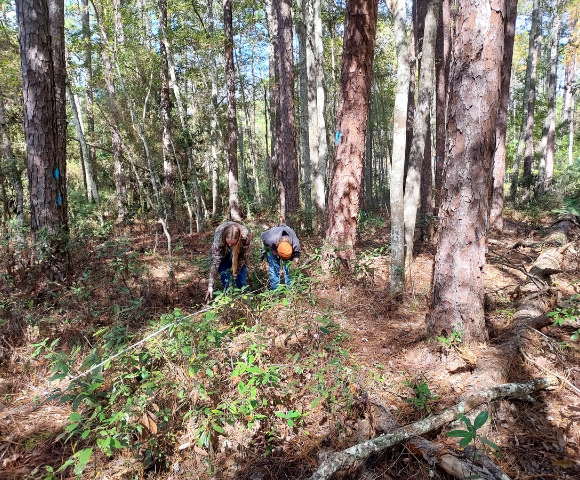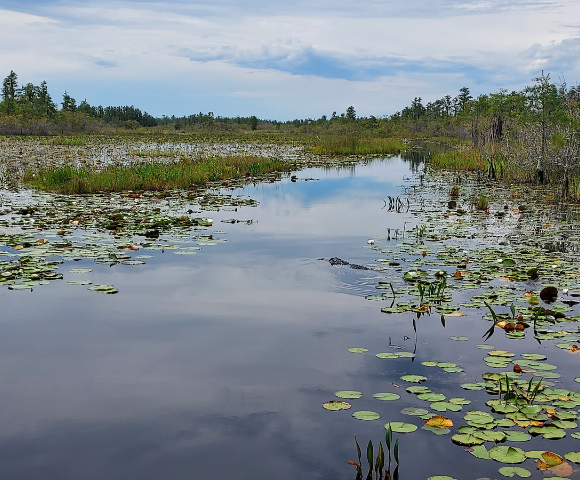- Home
- Academics
- School of Arts and Sciences
- Environmental Science
- Wetland Science Certificate
Wetland Science Certificate
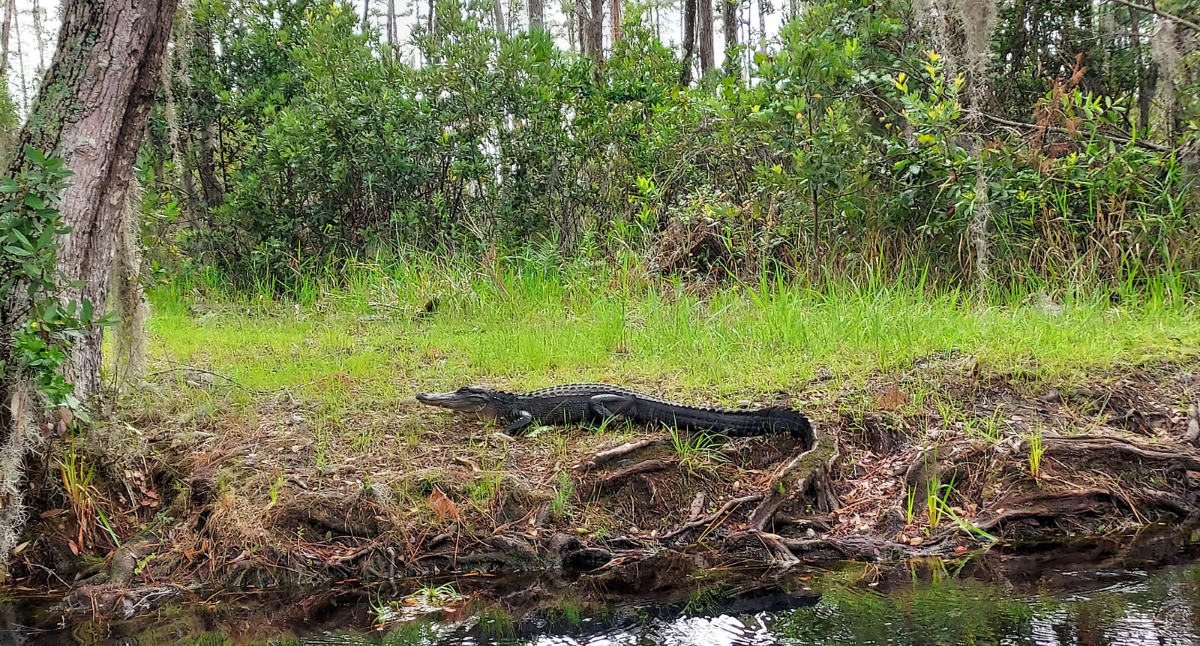
Wetlands play a critical role in natural and human environments by mitigating floods, improving water quality, and providing habitat for wildlife. There is a growing need for scientists to manage, conserve, and restore wetlands across non-profit, private, and government sectors. To obtain this certificate, students will gain comprehensive knowledge about wetland ecosystems and learn how to monitor, manage, restore, and delineate wetlands through classroom and field-based experience.
Why study Wetland Science at Coastal Georgia?
The Georgia Coast is an amazing living laboratory for wetland science! The Coastal Georgia campus is located minutes away from extensive salt marshes associated with St. Simons Island and Jekyll Island. Our students frequently visit important locations in the development of wetland sciences such as Teal Marsh on Sapelo Island and Okefenokee Swamp for class field trips. Students will also have the opportunity to contribute specimens to the growing collection of wetland plant species in the Coastal Georgia Herbarium. Additionally, course curriculum was specifically designed to help graduates pursue the certification through the Society for Wetland Scientists.
What will I learn?
In this certificate, students learn the fundamentals of wetland science as well as highly employable skills in wetland plant identification and wetland delineation. Students will gain in-depth experience in wetland delineation, functional assessment and regulation of wetlands, wetland restoration and creation techniques, wetland plant taxonomy, and wetland ecology.
Fall | Spring | Summer (Maymester Term) |
ENVS 4220K: | ENVS 4200K: | GEOL 4800: |
ENVS 4230K: | ENVS 4210K: | ENVS 4240K: |
What can I do when I graduate?
Graduates of this certificate program are prepared for employment in wetlands delineation and wetlands research as well as wetlands education and outreach. Additionally, this certificate program includes courses necessary to become a Wetland Professional in Training as a preliminary step toward full Professional Wetland Scientist licensure through the Society of Wetland Scientists.
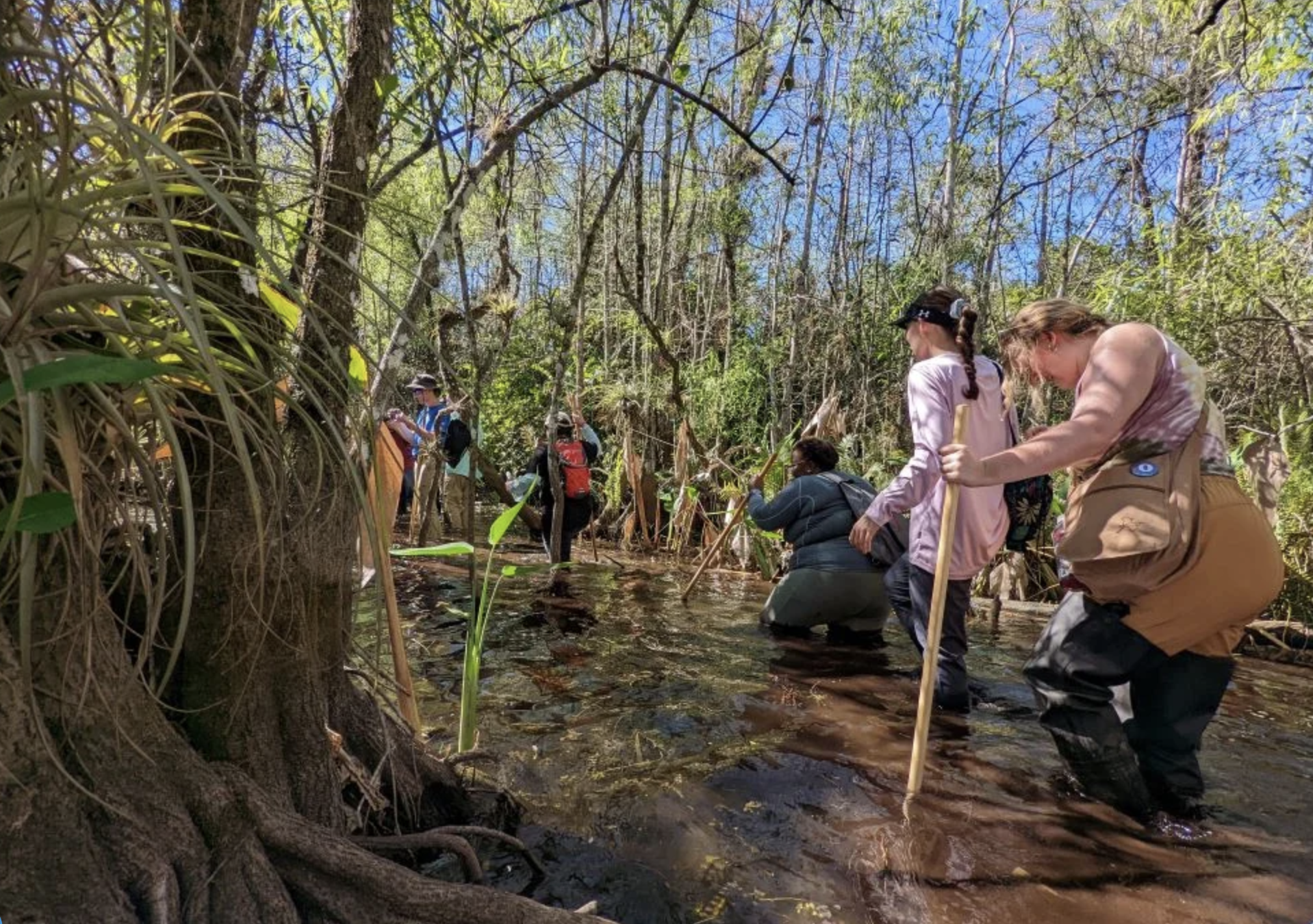
Everglades Trip Brings Students into World of Wetlands Restoration
During a trip to the Everglades National Park with their professors, 30 Coastal Georgia students camped beneath the stars, slugged through mud, slept in close proximity to some gators, and returned home with a clearer understanding of the important role wetlands play in today’s conservation efforts.
Contact Information:
Dr. James Deemy
James Deemy is a hydrologist and environmental scientist. He has a broad background in biology, ecology, and geology. His research interests focus on assessing the hydrologic connectivity between isolated, ephemeral wetlands and watersheds. He has specifically assessed the water quality and quantity of agricultural storm-based flows that connect wetlands to nearby waters in southwest Georgia. James also has active research in water resources education.
